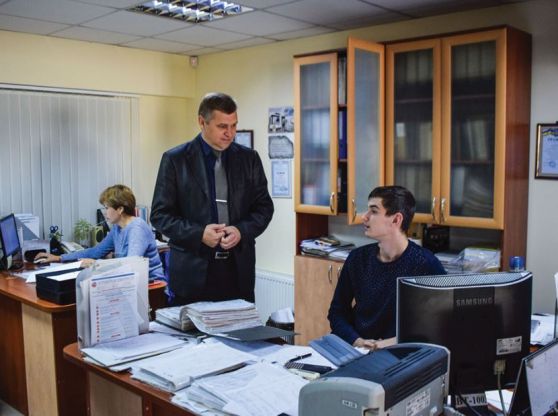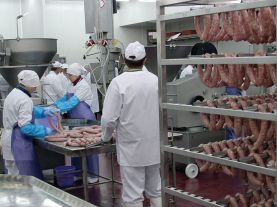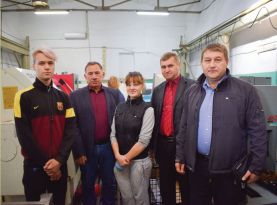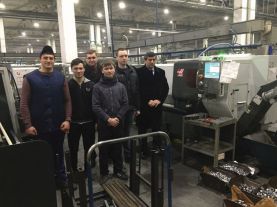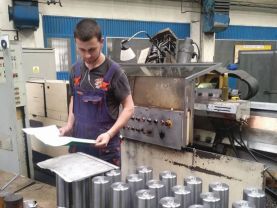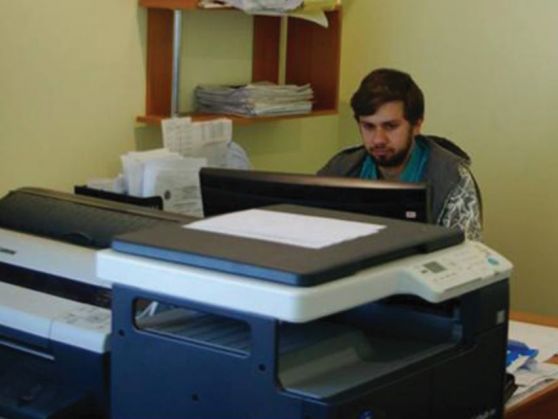Дуальна система навчання, за своїм змістом, означає паралельне навчання у освітньому закладі та на виробництві. За основу цієї системи покладено принцип взаємного зв’язку теорії з практикою, що дозволяє учням не лише знайомитися з виробництвом, але й засвоювати прийоми та навички роботи на робочих місцях підприємств промисловості та сфери побуту. Висока життєздатність цієї системи пояснюється тим, що вона відповідає інтересам всіх учасників цього процесу: держави, навчального закладу, підприємств чи організацій та студентів.
Для підприємств – це можливість підготовки спеціалістів, безпосередньо, під своє виробництво, виробничі технології та обладнання, максимальна відповідність корпоративним інтересам, економія часу та коштів на пошук та підбір кадрів, їх перенавчання та адаптація до умов конкретного підприємства. До того ж, у підприємства з’являється можливість перспективного планування заміни кадрових ресурсів та відбору кращих студентів, так, як за час навчання можна виявити їх сильні та слабкі сторони. Добре навчені молоді кадри швидко пристосовуються до робочого ритму виробництва, витрачаючи мінімально часу для адаптації, що позитивно відображається на іміджі підприємства та навчального закладу.
Для держави – це можливість реалізувати зміст професійно-технічного навчання згідно діючого законодавства і державних стандартів професій. Навчальний заклад забезпечує учнів теоретичними знаннями, достатньою професійною орієнтацією та послідуючим працевлаштуванням. Учні за дуальною системою рано набувають добрі знання й стійкі професійні прийоми та навички роботи, самостійність і безболісну адаптацію до дорослого життя, у них з’являється впевненість у завтрашньому дні.
Досвід використання дуальної системи навчання має наступні переваги у порівнянні з традиційною:
- дуальна система підготовки кваліфікованих спеціалістів усуває основний недолік традиційних форм та методів навчання – розрив між теорією та практикою;
- в механізмі дуальної системи підготовки закладено вплив на особистість, створення нової психології майбутнього робітника;
- навчання майбутніх спеціалістів за дуальною системою створює високу мотивацію отримання знань та набування професійних навичок тому, що якість їх знань прямо пов’язана з виконанням службових обов’язків на робочих місцях;
- зацікавленість керівників відповідних установ підприємства у практичному навчанні свого майбутнього працівника;
- професійно-технічний навчальний заклад працює у тісному контакті з підприємством замовником кадрів та ураховує його вимоги до майбутніх спеціалістів, а також залучає його працівників до розробки навчальних планів і програм з відповідних професій;
- дуальна система навчання може широко використовуватись в професійному навчанні України;
- в умовах виробництва швидше оновлюються виробничі технології і використовується найновіше устаткування;
- позитивним моментом можна відзначити вплив на студентів робітників виробництва з великим досвідом роботи і психології виробничого середовища на формування та становлення молодого працівника, його орієнтацію на конкретне виробництво.
ПОЛОЖЕННЯ ПРО ОРГАНІЗАЦІЮ ДУАЛЬНОГО НАВЧАННЯ В ТДАТУ
2024-2025 н.р.
Наказ № 112-С від 17.02.2025р. Про переведення здобувачів вищої освіти на дуальну форму навчання
Наказ № 408-С від 17.09.2024р. Про переведення здобувачів вищої освіти на дуальну форму навчання
2022-2023 н.р.
Договори на дуальну форму 2022-2023 н.р.
2021-2022 н.р.
Наказ № 1647-С від 13.09.2021р. Про переведення здобувачів вищої освіти на дуальну форму навчання
Звіти та договори з дуального навчання 2021-2022 н.р.
2020-2021 н.р.
Про переведення здобувачів вищої освіти на дуальну форму навчання. Наказ № 166-С від 04.02.2021 р.
Атестаційнтй лист дуального навчання
Договор на дуальну форму 2020-2021
Звіти да договори з дуального навчання за 2020-2021 н.р.
2019-2020 н.р.
Звіти та договори з дуального навчання за 2019-2020 н.р.
2018-2019 н.р.
НАКАЗ ПРО ПРОВЕДЕННЯ ДУАЛЬНОГО НАВЧАННЯ СТУДЕНТАМИ ТДАТУ № 1670-С 2018-2019 НР. 1 СЕМ.
ДОГОВОРИ НА ДУАЛЬНЕ НАВЧАННЯ З ПІДПРИЄМСТВАМИ 2018-2019 Н.Р. 1 СЕМ.
2017-2018 н.р.
ДОГОВОРИ НА ДУАЛЬНЕ НАВЧАННЯ З ПІДПРИЄМСТВАМИ ТА ОРГАНІЗАЦІЯМИ 2017-2018 Н.Р.
НАКАЗ ПРО ДУАЛЬНЕ НАВЧАННЯ СТУДЕНТАМИ ТДАТУ № 85-С ВІД 29.01.2018

